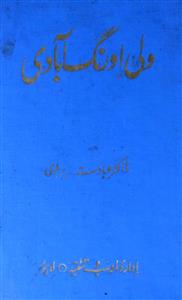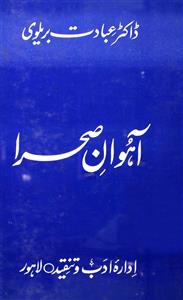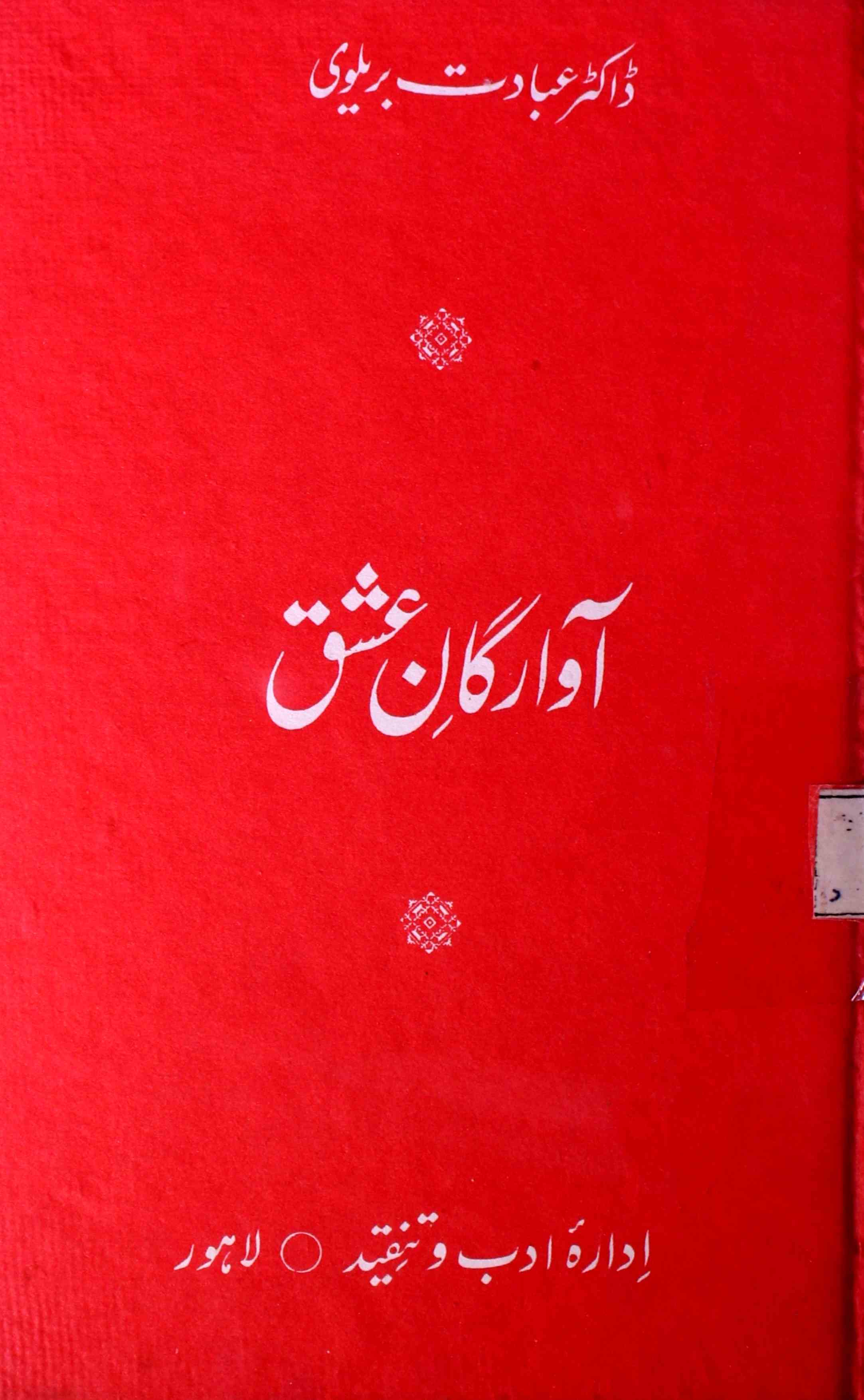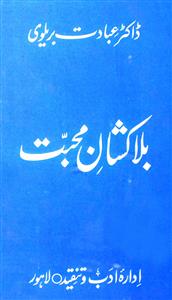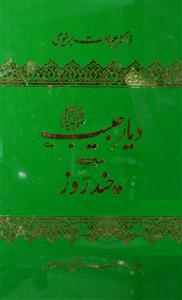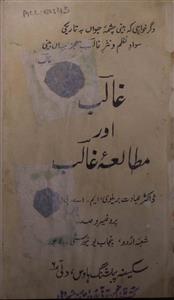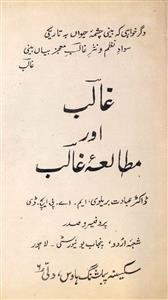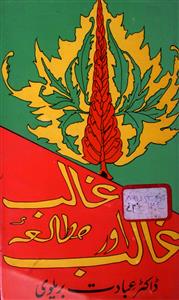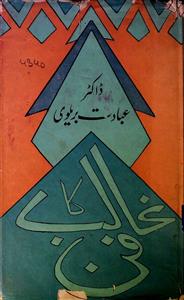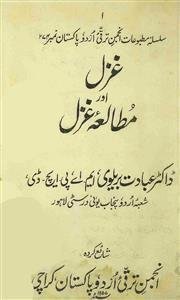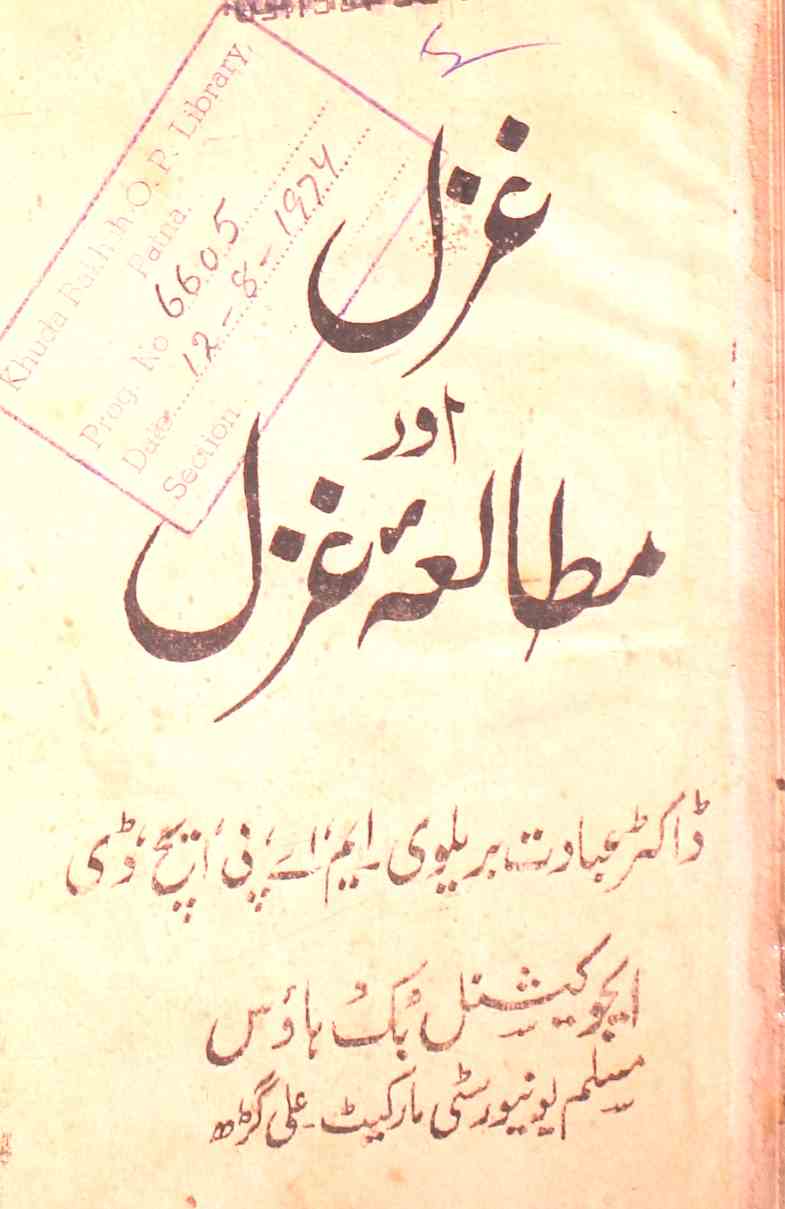 For any query/comment related to this ebook, please contact us at haidar.ali@rekhta.org
For any query/comment related to this ebook, please contact us at haidar.ali@rekhta.org
About The Book
اردو شاعری کے باوآدم ولی اورنگ آبادی اپنے کلام اور زبان دانی میں ہم عصروں میں منفرد ہیں۔انھوں نے نے صحیح معنوں میں اردو غزل کو غزل بنایا۔انسانی زندگی کے لطیف اور حسین پہلوؤں کو اس میں جگہ دی۔دکنی زبان کو انھوں نے اردو زبان کاروپ دیا ہے۔ان کا کلام سادگی اور سلاست کی عمدہ مثال ہے۔ولی اپنے عہد کے بڑ ے فن کار اور عظیم شاعر تھے ۔اسی لیے ان کے کلام کے اثرات ہم عصروں پرمرتب ہوئے۔ولی خالق جمال بھی تھے ۔جس کے اثرات ان کی غزل میں ہرجگہ موجود ہے۔ زیر نظر کتاب ولی کی شخصیت و فن پر روشنی ڈالتی اہم ہے۔ جس میں مصنف نے ولی کے حالات ،شخصیت ،ماحول ،تصانیف ،غزل گوئی ،تصوف ،اور جمالیاتی پہلو پر مفصل معلومات فراہم کی ہیں۔ولی کی اردو شاعری کی روایت میں جو حیثیت حاصل ہے اس کو پیش نظر مصنف عبارت بریلوی نے زیر نظر کتاب "ولی اورانگ آبادی تصنیف کی ہے۔جوولی کی دلچسپ شخصیت اور پہلو دار شاعری کو سمجھنے اور ان سے لطف اندوز ہونے میں معاون ہے۔جو بالترتیب حالات او رشخصیت،سیاسی ،معاشرتی ،تہذیبی اور ادبی ماحول،تصانیف ،تغزل اور اردو شاعری میں ولی کی اہمیت پانچ ابواب میں منقسم ہے۔ کتاب کے آخر میں شامل کتابیات اور اشاریہ نے کتاب کی وقعت مزید بڑھا دی ہے۔
About The Author
Ebadat Barelvi was born on August 14, 1920. After completing his education, he took up teaching. The first Anglo-Arabic college was established in Delhi but after the partition of the country it had migrated to Pakistan. There, he became associated with Oriental College, Punjab University in Lahore and later became the President of the Department of Urdu. He also became the Dean of the Faculty of Arts. He retired from University of Punjab as Principal of Punjab University Oriental College, Lahore and Chair Department of Urdu after attaining the age of superannuation on August 13, 1980. He has also taught at Ankara University, Turkey and the School of African Oriental Studies in London.
Ebadat is a renowned critic and researcher of Urdu. Some of his books have been in the curriculum of various universities in India and Pakistan. This is one of the reasons for his fame. His contribution to Urdu criticism is unparalleled. Some of his works include, “Urdu Tanqiid Ka Irtiqa”, “Tanzqiidi Zawiye”, “Ghazal Aur Mutalla-e-Ghazal”, “Jadiid Urdu Adab”, “Mir Taqi Mir”, and many more. He did not compile any school of criticism. Nor did he enter into the task of composing poetry. He is concerned with descriptive analysis. In such an analysis, from the initial stages of a genre to the evolutionary stages are all discussed.
He does not maintain their relationship with the layered complexity of literary issues, but deals with them on a spiritual level in such a way that the literary contexts that are usually on the surface become clear. He does not make their critical approach cumbersome but adopt the popular method of analysis. Usually, a critic infuses his knowledge in his analysis in such a way that the reader becomes tangled in the complex psychology of the expression, but Ebadat does not weigh in his writings with such a load of knowledge. He is a master of simplifying everything.
His studies on Mir and Ghalib are considered far-reaching. He has tried to look at and understand these poets in a slightly different way. It seems that he is trying to give a clear direction to his criticism and also that he is trying to look at the internal affairs of his subjects. But these writings were works of his final days. Dr. Ebadat Barelvi died on December 19, 1998 at the age of 78.
 For any query/comment related to this ebook, please contact us at haidar.ali@rekhta.org
For any query/comment related to this ebook, please contact us at haidar.ali@rekhta.org
Write a Review
Jashn-e-Rekhta 10th Edition | 5-6-7 December Get Tickets Here
